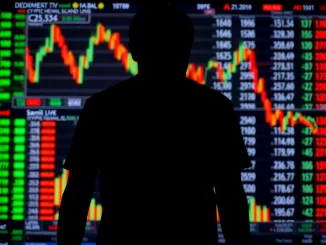
Recent developments out of Argentina have brought the controversial Javier Milei and the associated LIBRA memecoin back into the spotlight. Argentina’s Anti-Corruption Office has officially ruled that President Javier Milei did not violate public ethics laws regarding his promotion of the token, a decision that has stirred further discussion within the nation’s political and crypto circles.
The Core of the LIBRA Memecoin Controversy
The controversy originated from a post made by President Milei on February 14th on the social media platform X (formerly Twitter). The post was interpreted by many as an endorsement or promotion of the LIBRA memecoin. This event quickly drew scrutiny, particularly after the token experienced a significant price collapse, plummeting by more than 85% shortly after the promotion.
The rapid price decline led to investor losses and subsequently triggered legal action. An Argentine federal judge responded to the situation by ordering the freezing of assets related to the LIBRA project as part of an investigation into potential wrongdoing.
Investigating Argentina Ethics: The Role of the Anti-Corruption Office
Following the public outcry and legal actions, the matter was brought before Argentina’s Anti-Corruption Office. The central question for the office was whether President Milei’s actions constituted a violation of public ethics laws. Specifically, the investigation aimed to determine if a public official, using their platform, improperly promoted a private financial asset, potentially leveraging their position or government resources.
Investigations into political figures promoting financial instruments are not uncommon globally, especially in the volatile cryptocurrency market. The unique aspect here was the direct involvement of a head of state in promoting a relatively unknown memecoin, which are often associated with high risk and speculative trading.
The Ruling: Was Milei’s Memecoin Promotion Official?
According to reports, the Anti-Corruption Office concluded that President Milei’s post promoting the LIBRA memecoin was made in a ‘personal capacity’. The ruling stated that the post was not connected to government resources or official duties. This distinction was key to the office’s decision to clear him of violating public ethics laws.
The argument presented was that the President, like any private citizen, is free to express personal views or engage in personal activities on his private social media accounts, provided these activities do not involve the misuse of public funds, resources, or his official position for personal gain or to the detriment of public interest in an official capacity.
What This Means for Argentina Crypto and Political Scrutiny
The decision to clear President Milei has implications for how public officials in Argentina might interact with and comment on private financial assets, including those within the burgeoning Argentina crypto sector. While the ruling focuses on the ‘personal capacity’ argument, it doesn’t necessarily resolve the broader ethical debate around public figures promoting speculative assets, especially given the subsequent market crash and asset freeze related to LIBRA.
The incident highlights the increasing intersection of politics, social media, and the cryptocurrency market. It also underscores the challenges regulatory bodies face in defining the boundaries of personal versus official conduct in the digital age, particularly when the individual holds the nation’s highest office. The prior judicial order to freeze assets related to LIBRA suggests that while the President may be cleared of an ethics violation, the project itself and its promoters could still face legal challenges.
Summary: A Complex Ethical Landscape
In summary, Argentina’s Anti-Corruption Office has cleared President Javier Milei of ethics violations concerning his promotion of the LIBRA memecoin, determining his action was personal. This ruling occurs against the backdrop of a significant price crash for the token and a judicial order freezing related assets as part of a separate investigation. The case underscores the evolving complexities of public ethics in the digital era, especially regarding high-profile individuals and the volatile world of cryptocurrencies like memecoins. While President Milei is cleared on this specific ethics charge, the broader implications for political conduct and crypto promotion in Argentina remain a subject of ongoing discussion and scrutiny.



